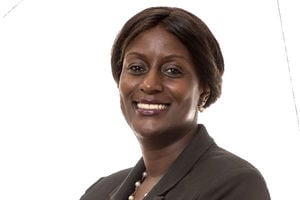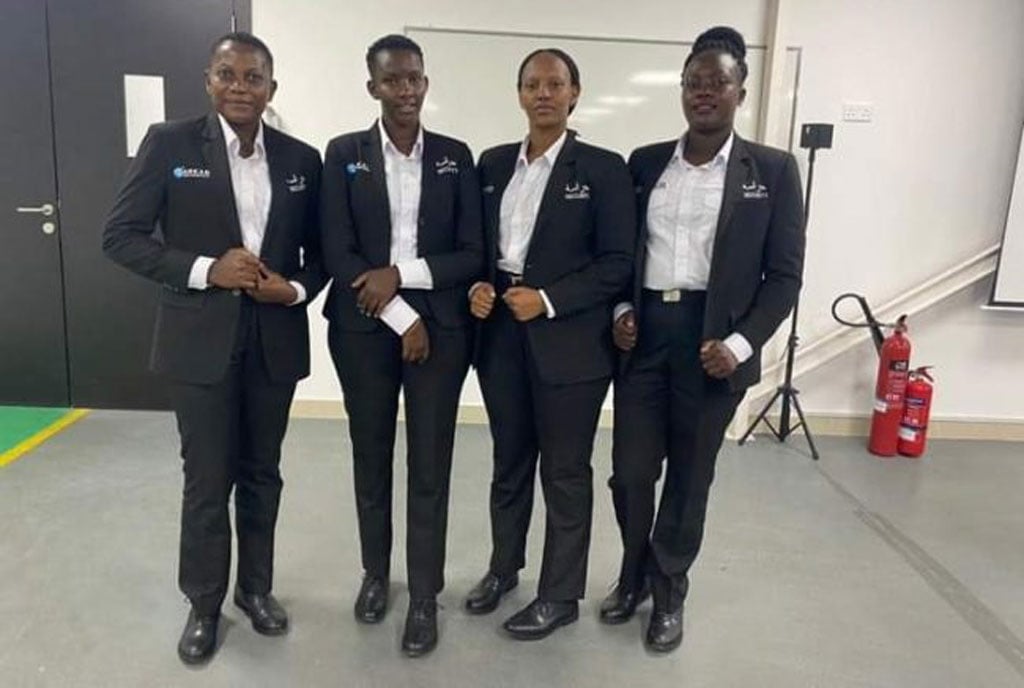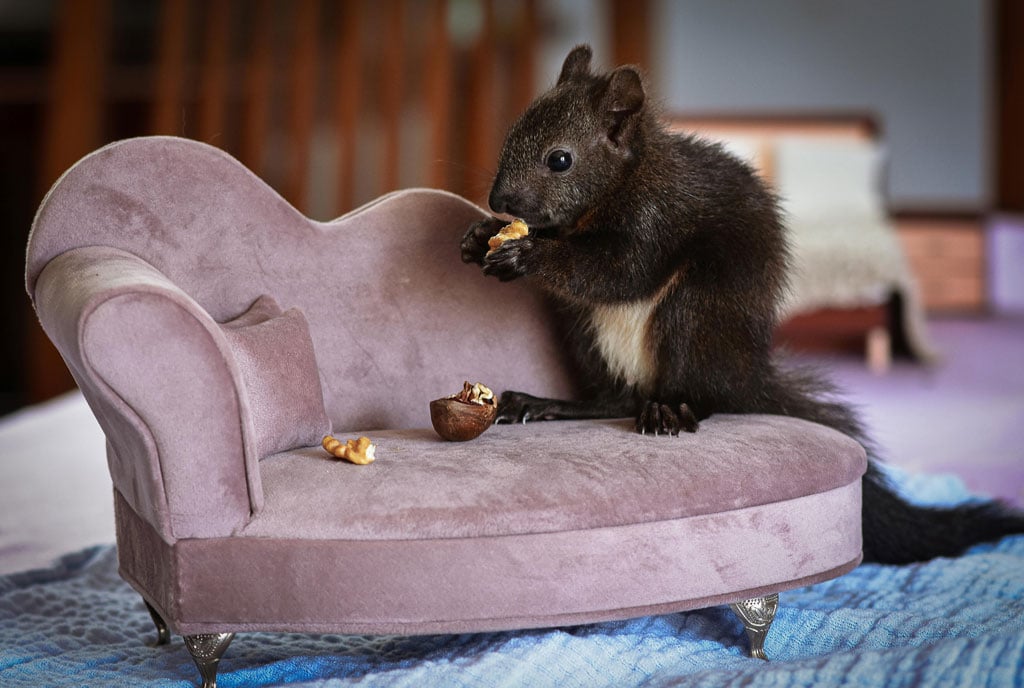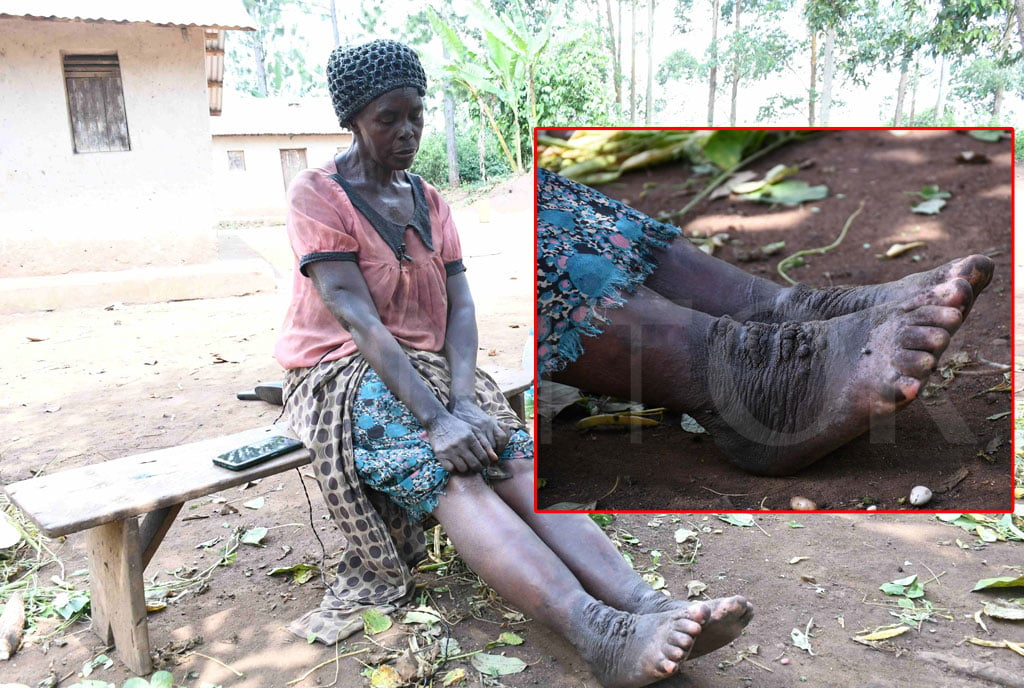
Ivan Oyege, lecturer. Photo | Esther Byoona Tusiime
How do you describe yourself?
My name is Ivan Oyege, and most people know me as a chemistry/mathematics teacher and others as a chemistry lecturer. After graduation, I taught at several schools but I am currently a chemistry lecturer at Busitema University and Islamic University in Uganda-Kabojja Female’s campus. I have a Bachelor of Science and Education degree, a Master’s degree in Chemistry from Makerere University partially funded by the Embassy of Sweden.
What are you currently involved in?
I am pursuing a PhD in Environmental Science at Florida International University Miami, Florida, and my research is more banked towards Applied Chemistry in Agriculture, which links to environmental chemistry. My PhD research is focused on fall armyworms. Uganda has grappled with the fall armyworm affecting farmers since 2016. Farmers do not know how to manage the pest, and I have seen several reports on NTV almost every year about this pest and its look-alike, African armyworm.
Has being an environmental chemist always been your passion?
Not really. It is a passion I developed at Busitema University, where I fell in love with analytical and pesticide chemistry, which are part of environmental chemistry. Environmental chemistry is quite broad as it incorporates research that involves the environment. In finding solutions for these environmental challenges, we can use analytical chemistry with the knowledge of pesticide chemistry in the case of pesticides.
However, my passion was to be a medical doctor, which I did not get to be once I missed out on government sponsorship in medical school.
What are your non-negotiables?
I am flexible in many aspects, but two things; my faith and time. There was a time when my bosses wanted me to work on Sundays but I would not work. Secondly, I treasure my time. I take the notion that time is money very seriously, which has worked for me. I try to ensure that every hour is accounted for, especially on weekdays. Most times, I do not agree with people who say ‘African time’ because we all lose time at the end of the day.
Would you call yourself successful?
Honestly, success is relative, but by the grace of God, I would say yes. I can tell you that everyone with whom I went to school with knows how I was and how I struggled with finances since I am from a humble background. But against all odds, through thick and thin, I have made it to where I am today.
I attribute my success to several factors: God, my family, hard work, persistence, planning five years ahead, believing in myself, not listening to people who discourage me, Friends, my boss, especially Iren Mutebi, the former headmistress of London College of St. Lawrence Maya, and being disciplined.
How do you balance your professional life and personal life?
I am a disciplined man and I follow a routine. A PhD can be very draining mentally, therefore there must be a break. I work from Monday to Friday, 9 am to midnight, with some breaks at lunch and three-hour breaks after 5pm. After 5 pm, I catch up and play with my son. On Saturdays and Sundays, I do not work at all. It is family time.
Are there any differences between the roles of an environmental chemist and a PhD student?
At the moment, no, because I am the same person, and my research largely falls within environmental chemistry. Furthermore, I feel that I am an environmental chemist because of the kind of research I conduct. At least that is how I see it, and this aligns well with environmental chemistry. Right now, being a PhD student is more tasking than just conducting my research without necessarily pursuing a degree.
Anything you could do better if you turned back the clock?
Two stages; When I joined A-Level, I chose to do a combination PCB/M. I was admitted to Kyambogo College, a high-performing school, at least then, but I went to another school for my A-Level. This changed my trajectory tremendously, and hopefully, by now, I would be a medical doctor.
The second stage was after my A-Level. I had passed and would qualify for medicine or any other medical course on private sponsorship, but I did not take that route. But I am content now.
Who are your role models?
Honestly, I do not have those many role models, as I derive my motivation from various sources. I grew up hearing about Dr Ben Carson, an American writer and neurosurgeon, and his story inspired me to work hard and believe in my dreams. I have always dreamt of the impossible becoming possible. Later, I read his book Gifted Hands, which changed my life forever. Currently, I am focused on pursuing my dream, and believing in what is thought to be impossible. I am inspired by the story of Katherine Johnson, an African American mathematician whose calculations of orbital mechanics were crucial to the success of NASA’s space missions, including the Apollo moon landings. Her work helped ensure that astronauts could safely travel to and from space. Knowing that she was doing this incredible work amidst disbelief from his colleagues but eventually made it is very inspiring.
What are your leisure activities outside school and work meetings?
I love watching soccer, especially the premier league and my team is Arsenal. I also serve at my church, I love watching action crime movies. Sometimes I play soccer and also run. I hang out with my family and friends at the beach or state parks. These days, I watch many videos on Facebook that keep me updated about what happens around Uganda and the rest of the world.
How would your friends, family, and colleagues describe you?
Some friends describe me as friendly, funny, a joker, talkative, happy, and generous; others call me the man of God, and others describe me as a pastor. Interesting. My family describes me as a listener who is fair and respectful to everyone and their opinions. My colleagues have mixed opinions, depending on who and where we worked. They know I am a hard worker, trusted, dependable, faithful, prayerful, family man, strict, friendly, and most importantly, a man of my word.
Advice for those interested in pursuing chemistry.
Chemistry is considered a hard subject worldwide no matter where you go, and so many people do not like it. I think the first step is to decide to like the subject. I am deliberate about “making a decision” because it is not a subject many would find interesting and like. Once you like the subject, you will pay attention to details, read more, and consult with teachers or lecturers. Eventually, it becomes fun. Chemistry has some key fundamental concepts; if you understand, most of the content revolves around these concepts. So people must learn these basics, taught at the O and A levels.
Another point I can mention is about how it is taught. If chemistry teachers can chip in some stories within their classes and the applications of the concepts in the real world, it is easier for the students to make a connection and love and pass the subject. These days, there are many free videos online and on YouTube content that both students and teachers can watch to make the concepts easy and understandable.
I have learnt that sometimes, but not always, if you want to be successful, you need to do things only a few people like doing. For instance, chemistry has several applications in real life, but few people study it; it might promise jobs for chemistry graduates in Uganda and out of Uganda. My undergraduate admission had computer science and mathematics as my subjects. Still, I changed my computer science and replaced it with chemistry, and I have got jobs and opportunities because of this chemistry. Never settle for less.






